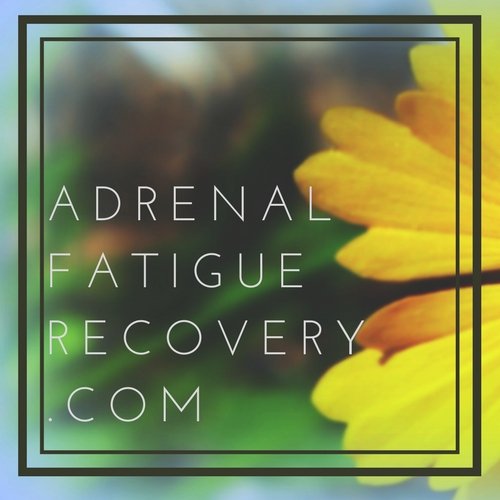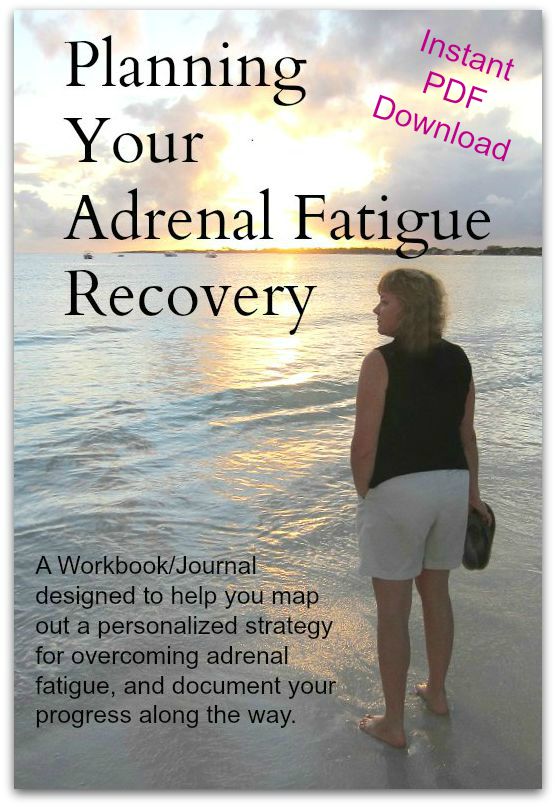Plan for Wellness
Are Delayed Food Allergies
or Food Intolerances
the Cause of
Your Adrenal Fatigue?
A "hidden" stress to our adrenal glands, delayed food allergies and food intolerances are also culprits in hindering our attempts to feel better and have more energy. When we think of being allergic to something, we typically expect that within a relatively short time period we will begin to see obvious and dramatic reaction to the offending substance, like hives or swelling and shortness of breath, but with delayed food allergies, that is not always the case. It may take hours or DAYS to manifest symptoms, and then they may not be a reaction that we recognize.
The adrenal hormone cortisol plays a role in responding to allergens, so when you are constantly exposing yourself to foods you are allergic to, your adrenal glands are constantly working to respond. When the offending allergen is something as common as wheat, your adrenals are always on some level of "alert", and you may not even realize that a food allergy is the source of this stress.
Food Intolerance vs. Food Allergy
Two Kinds of Food Allergies
Something most people are not aware of is that there are two kinds of food allergies. Sometimes you may be severely allergic, and have serious immediate anaphylactic reactions (a reaction commonly associated with peanuts and seafood). This is called an IgE or "true allergy", and is what most people think of when they hear the words food allergy.
However, the second type of food allergy is far more common, and far less popularly understood. The second kind is called an IgG food intolerance, food sensitivity, or delayed food allergy. Delayed food allergies have many different types of reactions, that take place hours or even days after you've eaten the offending foods. You may not even be aware that some of the physical problems you are having are related to something you ate, much less something you ate 3 days ago. If we *do* associate a physical response with something that we ate, we are usually trying to think of something unique that we ate, never realizing that we are most likely sensitive to something we are eating all the time. Some of the most common food allergies are wheat and dairy! Sometimes, it can even be a reaction to a specific combination of foods that you don't react to individually...
Leaky Gut Syndrome and Adrenal Fatigue
When you have multiple food sensitivities, the lining of your stomach and intestines becomes irritated and inflamed, and if you are continually eating something or other that is irritating, it never has a chance to rest and heal, leading to stomach pain, or heartburn, or gas, or other digestive discomfort. You may even develop "Leaky Gut Syndrome", which is an increased permeability of the intestinal walls that allows undigested proteins and fats to "leak" out of the intestine and into the bloodstream, where it sets off an autoimmune reaction. This irritation triggers increased cortisol secretion as your adrenal glands are alerted to an increase in histamine levels (the histamine causes the inflammation, the cortisol is an anti-inflammatory).
What does this mean for people with tired adrenal glands?
If you are constantly eating something that is causing inflammation or autoimmune response, you are asking your already tired adrenal glands to continually maintain elevated cortisol levels to supress the inflammation. Now imagine if your sensitivity is to wheat, which is consumed in at least one form at nearly every meal, either as a main feature, or as an ingredient in the canned soup that you used, or the soy sauce you marinated the meat in. The unrelenting exposure to an allergen is an often unrecognized contributing factor in adrenal burnout.
Symptoms of Food Allergies
Aside from the obvious gastric symptoms, delayed food allergies can also manifest themselves in ways you would never think to connect. Rheumatoid arthritis, fibromyalgia and other autoimmune syndromes, migraines, asthma, ADD, autism--these and many other conditions have all been found to have food sensitivity "triggers", and people who have identified their food sensitivities and eliminated them from their diets have often found dramatic improvement in their health.
Many day-to-day complaints are also unknowingly caused by delayed food allergies: cloudy thinking, inability to concentrate, lethargy, headaches, migraine, joint pain, muscle weakness, depression, chronic sinus issues, plugged ears or chronic ear infections, weight gain, dark circles under your eyes, rosy cheeks, acne, and oddly, cravings for the food you are allergic to, are all common food allergy reactions.
Food Sensitivity Tests
Your doctor can order a blood test to identify your level of sensitivity to the most common offenders. There are some who debate the reliability of the results (especially the moderate to low scores) however, it is still a good starting point for a list of things that you can try eliminating or monitoring for reactions. If you have multiple food allergies (which is quite likely), this will be the fastest and easiest way to determine what they all are.
If you don't have a doctor, you can also order a food sensitivity lab test yourself directly from TrueHealth Labs. While not cheap, the turnaround time is approximately 7 days after the lab receives your sample, and you can also order a one-on-one phone consulation with a functional medicine doctor to review your results.
If you want to go the self-diagnostic route, you can follow the general instructions below for doing your own elimination diet, or follow a more structured elimination diet as outlined in the book The Plan, by LynGenet Recitas.

The Plan:
Eliminate the Surprising "Healthy" Foods That Are Making You Fat--and lose weight fast!
The Plan, by Lyn-Genet Recitas, is a good, fast, delicious elimination diet designed to quickly identify many of the most common food sensitivities, while maintaining a positive focus on building up the list of things you love that you are NOT reactive to, and giving you a tasty repertoire of recipes that are low-reactive and allow you to eat as much as you want during the cleansing and testing phases. The 21-day menu plan takes all the pressure off of you to plan out your meals, and explains when and how to test the most commonly reactive foods and how to recognize when your body is reacting. You will need to have a Digital Bathroom Scale that measures tenths of a pound, because the author says that eating a reactive food will cause inflammation and can cause a measurable weight gain of .5 pounds or more in a matter of hours!
Even without following The Plan, a friend and I were both able to recognize specific food sensitivities after just reading the book and knowing what to look for. She lost 7 pounds in one week just by eliminating turkey from her diet, which she was previously serving at least twice a week, thinking it was a healthy choice for her family!
UPDATE:
NEW FOR 2017
The Metabolism Plan

This new release for 2017 is an updated version of the original Plan by Lyn-Genet Recitas. In addition to testing for food reactivity, it also includes testing to evaluate thyroid function as well as which forms of exercise are best for YOU individually, and which forms are causing inflammation and are actually PREVENTING you from losing weight!
While the basic diet plan seems to remain close to the same as in the original book, the recipes (especially the one for spicy coco sauce) seem to be more clearly written, and there is much more information about the connections between thyroid and adrenal function, stress, exercise, and how these all affect your metabolism.
If you have already read the original version of The Plan, you may still find value in this new update. If you have NOT yet read it, get this new, updated version instead.
Can You Cure Food Allergies?
Fortunately, it is possible to reverse some IgG delayed food allergies. It is important when you have multiple food allergies to start by eliminating EVERYTHING on your sensitivity list, for a period of 2-3 months, because it can take that long to clear the allergens from your system. You should be taking a good probiotic during this time to help repopulate your intestinal tract with beneficial bacteria to aid digestion. Aloe Vera juice also has intestinal healing properties. If you have a candida yeast overgrowth in your gut that should be addressed during this time as well.
After that healing and cleansing time, you can start re-introducing the eliminated foods one at a time, starting with the lowest scoring offenders. It should be very obvious after the resting period which foods cause a reaction, and what it is. It is possible that many of the foods that previously caused problems can be tolerated in small or infrequent amounts. Keep a journal noting each food you try to reintroduce. If you don't get a reaction the first day, you can try that food a second time on the next day, and if you still have no reaction, you can have more on day 3. After that, wait 4 days, and try the next lowest scoring food on your list, following the same method. If you *do* have a reaction, of course, you don't need to keep trying that food.

Dr. Wilson's Inner Healing
Dr. Wilson, author of Adrenal Fatigue: The 21st Century Stress Syndrome
and the developer of Future Formulations (now called Dr. Wilson's) Adrenal Rebuilder, Adrenal C and Super Adrenal Stress Formula
, the only complete supplement program for adrenal fatigue, also has a formulation for helping promote health and healing in your digestive tract.
My daughter and I have both struggled with food sensitivities for what, in hindsight, has been our whole lives. The culprits? For me, wheat and dairy. For her, not just wheat and dairy, but also corn, chicken & soy. She gets terrible stomach cramps when she eats her sensitivity foods. I just get sleepy…and gassy ;-)
After I started on Dr. Wilson's adrenal fatigue program, I discovered his "Inner Healing" formulation, designed to help support the lining of the stomach and intestinal tract, which, when constantly inflamed due to food sensitivites, become damaged and "leaky". Inner Healing is designed to provide nutrients to help your body restore the lining of the digestive tract to a healthy condition.
My daughter has noticed a dramatic improvement in how she feels after eating when she is taking the Inner Healing regularly. While it is still necessary for her to eliminate the offending foods, that's a lot easier said than done! However, we have noticed that even when she does eat them, she does not get as severe a reaction (in the form of stomach aches) as she used to. I believe that if she would actually eliminate ALL of her offending foods at one time and give her gut a rest period to heal, that she would be able to reintroduce most of those foods without a reaction .
Delayed food allergies are far more common than most people realize, and can be at the root of MANY health issues, not just adrenal fatigue. If you have chronic health issues that you just can't seem to shake, consider the possibility of a food sensitivity to something you eat regularly and try an elimination diet, you may find the results to be enlightening!

About Product Recommendations
Please note that while I do receive
commissions from some of the things promoted on this site, I recommend
them wholeheartedly because I feel they would be of benefit to you.
Advertisers/Affiliates have been hand-picked so that only
quality products are recommended. I have used many of these products in my own life and
share them with you because that's what friends do.
Read my full
advertising policy
here.
FOR MORE INFORMATION:
by
Lyn-Genet Recitas





